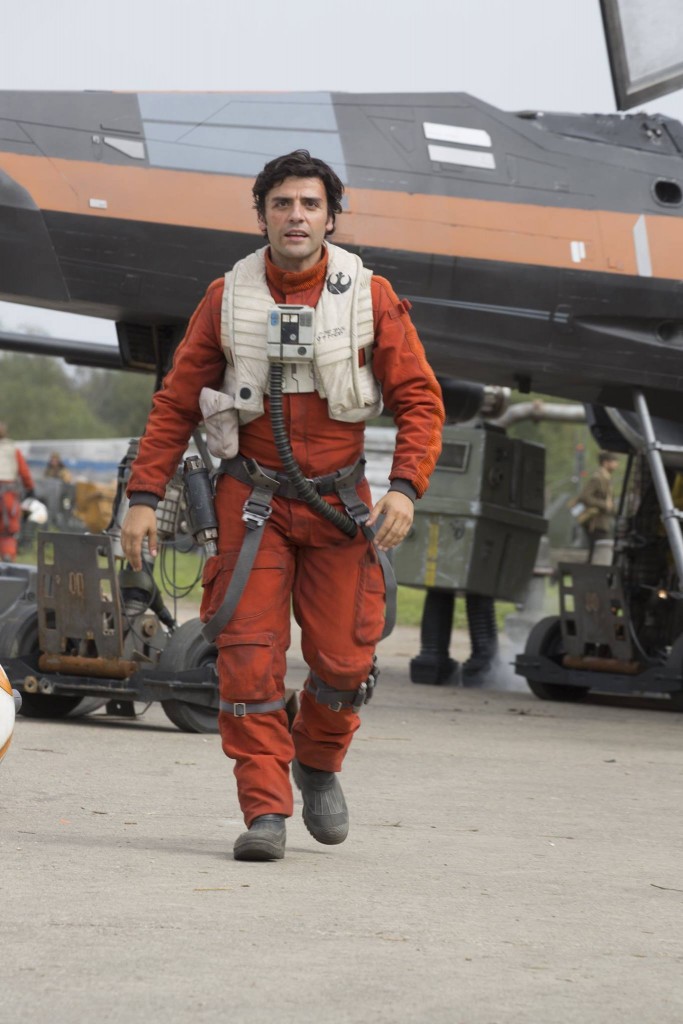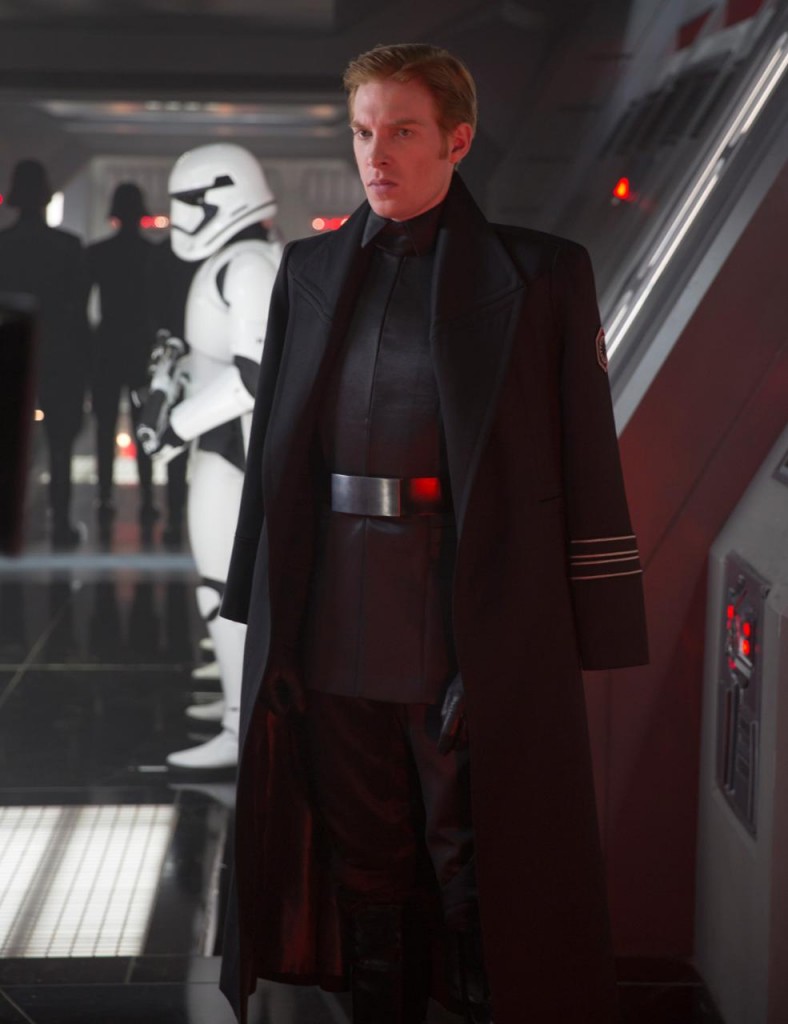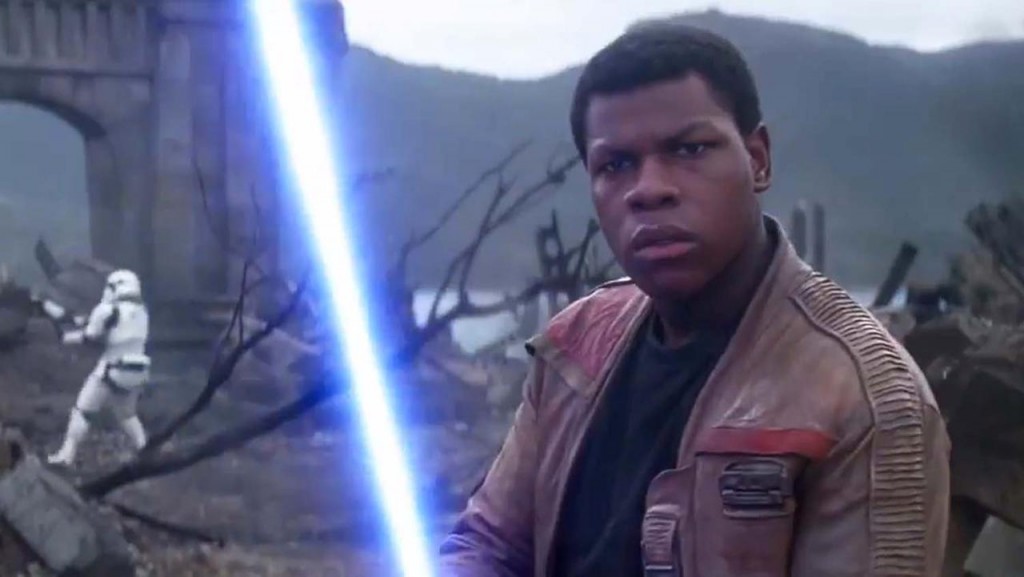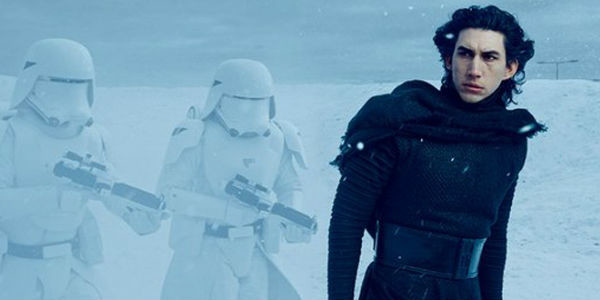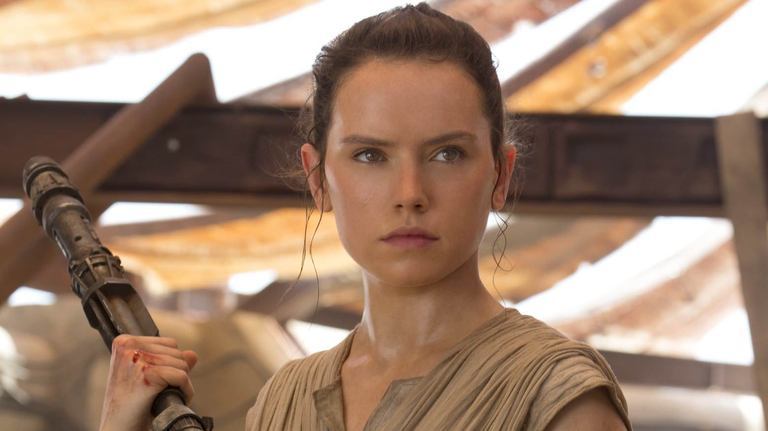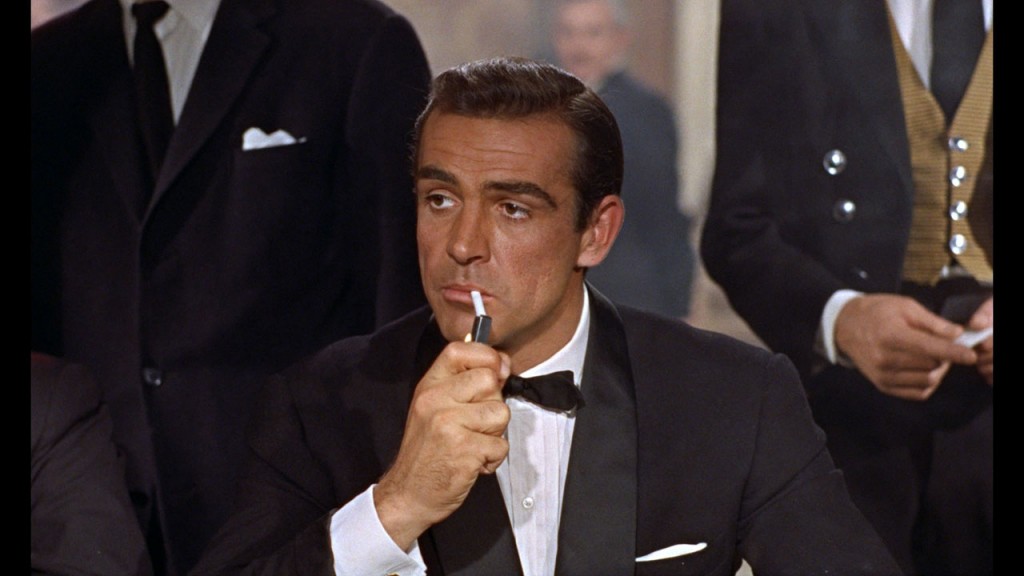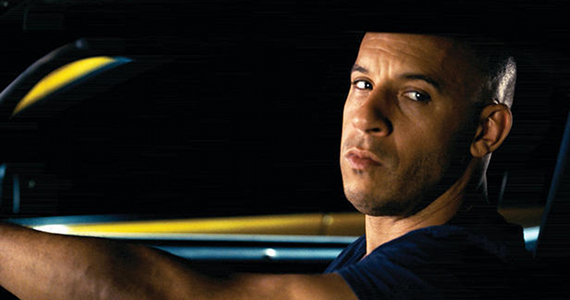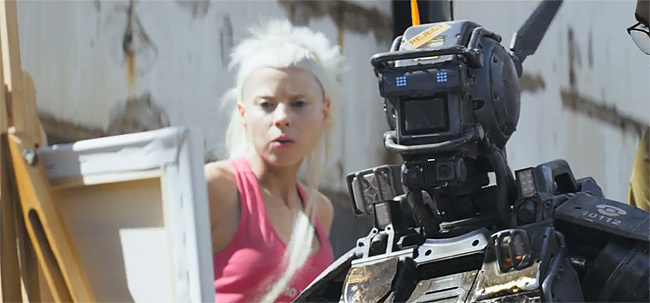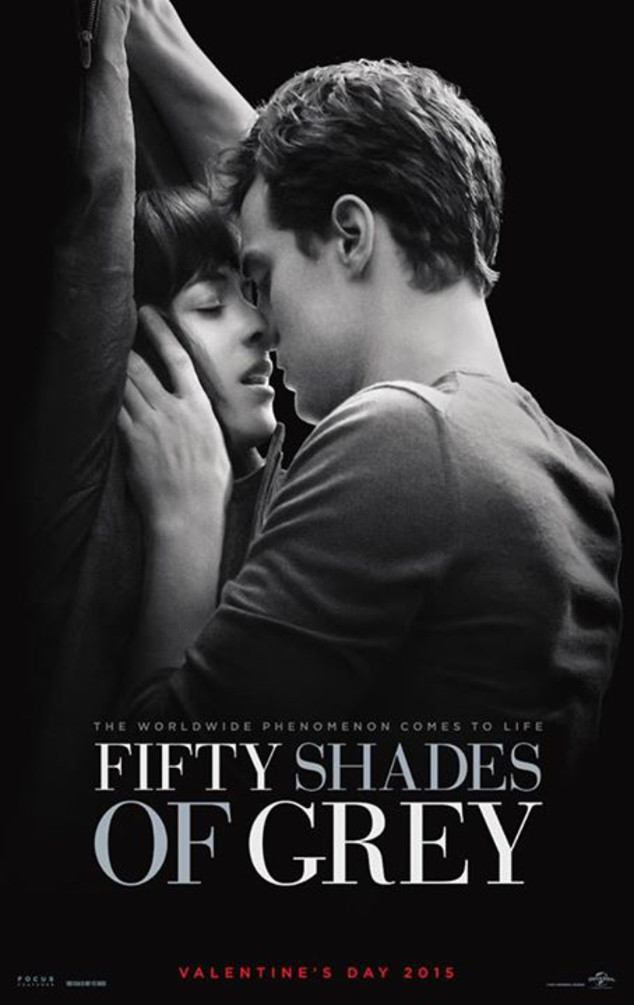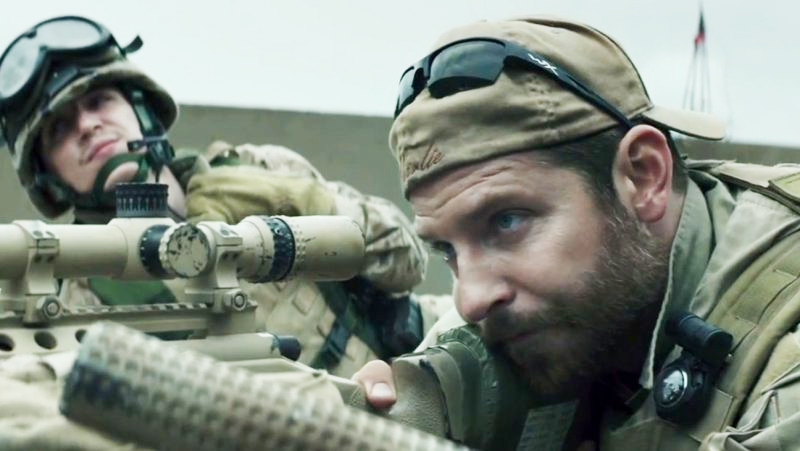Some thoughts on Star Wars: The Force Awakens: Poe Dameron and General Hux
Tale as old as time: the younger generation repeats the actions of the older generation. Each generation thinks they invented the world, but, always, there is precedent.
When A New Hope came out in 1977, its success was driven by teens but it was also a perfect family picture — adults could get lost in the nostalgia for old-timey serials, and perhaps admire the classically-hand-tooled-leather-bound storytelling, while children and teenagers could be simply thrilled and amazed as they never had been in a movie theater before. It was the Beatles of my generation, the one thing everyone agreed on.
I had never seen a Flash Gordon serial in my life, as there was no Youtube at the time, so the vision of George Lucas was a searingly brand new thing for me. I didn’t know that he’d lifted things from Flash Gordon (and many other sources), from the title crawl to the names of his characters. Nor would it have mattered to me if I did. Clearly, clearly, Lucas had added something to his endless references. Kurosawa could immediately see that Sergio Leone had stolen A Fistful of Dollars from Yojimbo, but I’m guessing he’d be hard-pressed to identify the elements George Lucas stole from The Hidden Fortress, although he would have recognized his beloved screen wipes.
Today, The Force Awakens repeats the feat of A New Hope, with a twist: children are amazed and moved by the stories of Rey and Finn, and everyone else gets lost in the nostalgia, but instead of nostalgia for other movies, it’s nostalgia for Star Wars itself. The defining feature of George Lucas’s generation of filmmakers (Spielberg, Scorsese, De Palma, Landis, Dante, Miller) was that they were the first generation of film-school directors: their movies were about other movies. Now, a generation later, filmmakers like JJ Abrams grew up on the movies of Lucas’s generation, and make movies about movies, about movies. My father was shocked at Jaws, not because of the violence in it, but because the kid who directed the movie ripped off Hitchcock at every turn and didn’t even break a sweat to do it. He took Hitchcock for granted. Now, that level of tossed-off cinematic reference is simply a part of the typical movie-going experience. In The Force Awakens, the Star Wars narrative, having launched a generation of imitators, has nothing to refer to but itself. What thirty-year-old genre could a new Star Wars movie refer to at this point?
A New Hope (God, I still hate that title) starred a cast of complete unknowns, with one special elderly guest star brought in to lend some gravitas to the proceedings. The Force Awakens repeats that trick, too, but in this case the elderly guest star is Harrison Ford, and he very much plays the Obi-Wan role, narratively speaking. The other actors are largely unknown, with the exception of Oscar Isaac, who plays Poe Dameron. Isaac, if you haven’t seen Inside Llewen Davis, A Most Violent Year or Ex Machina, is an incredibly serious capital-A Actor, the kind who, 30 years ago, wouldn’t have been caught dead in a Star Wars movie. If you can imagine Al Pacino playing a minor role in A New Hope, maybe Jabba the Hutt, with his tail being tread upon by Han Solo, that’s the level of incongruity at work here. (Not to mention Max von Sydow — Max von Sydow! — showing up briefly.)
That’s another symptom of our current generation of filmmakers. A Star Wars movie, or a Marvel movie, or a Harry Potter movie, or a Hunger Games movie, is no longer considered an embarrassment on your resume, something you did “for the money,” like Max von Sydow doing Flash Gordon (as we come full circle). It’s a badge of honor, a sign you’ve “made it.” “Serious” filmmaking used to be done in the realm of drama, and Star Wars was science fiction, a gutter genre. All that has changed now, all the serious money, and serious talent, is drawn not only to genre pictures, but juvenilia, and “serious drama” is all on television now. And Star Wars is the engine that drove that change.
But, to the question at hand: What does Poe Dameron want? Spoilers within!
some thoughts on Star Wars: The Force Awakens: Finn
Some folks on the internet find a cynical motive behind The Force Awakens‘s re-use of plot points from A New Hope. They see it as a corporation playing it safe, pandering to the audience, protecting their considerable investment. And yet, if “playing it safe” was the order of the day on the production of The Force Awakens, why are the four principle “good guys” of the movie played by a woman, a black man, a Guatemalan and a 73-year-old Jew? That sounds like idle snark, but let me assure you, movie studios are the most risk-averse institutions on the planet. I was once asked to develop a science-fiction franchise, based on a series of novels about a teenage girl trying to negotiate her way through a futuristic dystopia obsessed with beauty, and I outlined an entire trilogy, which took two and a half hours to pitch, only to have the female executive ask me if I could make the protagonist a boy. That was before The Hunger Games, of course, so now it would theoretically be “okay” to recognize that girls like science-fiction too, but to have a female protagonist with a black co-lead, and to have her kiss him in Act III? For the studio who refused to market Black Widow toys in connection with its Avengers movies, because “Disney has the girl market locked up with princess movies, thanks?” This is, I guarantee you, a bold step forward.
But, more germane to our discussion here, what does Finn want?
some thoughts on Star Wars: The Force Awakens: Kylo Ren
The true protagonist of The Force Awakens is Kylo Ren. He sets the narrative in motion and drives the action, and, in fact, “changes” the most. He also functions as the antagonist of pretty much everybody else in the movie. This kind of protagonist, once a staple of cinematic drama, is more properly called an anti-hero. An anti-hero is a protagonist who is on the opposite of a hero’s journey, a person who is bent on self-destruction. Nicolas Cage in Leaving Las Vegas comes to mind. Robert De Niro in Taxi Driver, or any of his major roles, really, is a classic example. And, of course, Darth Vader in the prequel trilogy.
More after the jump. Please don’t get your spoilers spoiled! Read more
some thoughts on Star Wars: The Force Awakens Rey
It seems hard to believe that everyone in the world hasn’t already seen this movie, but, just in case, please be advised that there are spoilers ahead.
Some thoughts on Furious 7
In 1962, Sean Connery starred as James Bond in Dr. No. This was not the first appearance of James Bond. The character had been around for nine years before that, in the novels by Ian Fleming of course, but had also showed up in both a TV adaptation and, of all things, a newspaper comic. But after Dr. No, Bond was everywhere. Connery’s performance lodged in people’s minds and by the time Goldfinger came out the character had become an immortal icon, a symbol.
But a symbol of what? As a child, I had no idea what the heck James Bond was “about.” The movies seemed to drag. They weren’t thrillers or dramas, they were light-comic pageants, devoid of suspense or surprise. Nothing of import seemed to happen in them. It wasn’t until later that I identified James Bond as a symptom of cold-war “lifestyle marketing,” related more closely to Playboy and Esquire than the espionage thrillers they purported to be. Bond was a hollow man, a collection of attitudes. A tuxedo, a gun, cool toys and a limitless supply of ladies.
Some thoughts on Chappie
I took my son, 13, to see Chappie last night. I warned him that the reviews have not been good. I wanted to see it because I love the way director Neill Blomkamp thinks about images; there were moments in District 9 where I had to remember to blink. Based on the promotional materials, what I was expecting was a kind of heartwarming sci-fi fable about a robot with an innocent soul who teaches the world something about what it means to be human, a sort of slightly-more-adult version of Short Circuit. I’m also a fan of Die Antwoord, the bizarre rap duo who have supporting roles in the movie, and wanted to see if they were as interesting as actors as they are musical performers. The reviews had made it clear that Blomkamp had slighted his attention to story at the expense of something, and that the fable-like qualities of the narrative didn’t sit well next to the science-fiction and action qualities.
Well, the movie pretty much took the top of my son’s head off. I don’t think I’ve ever seen him more excited about a movie before. He couldn’t sit still afterward. He started using references to “termite art” and the limits of narrative and wanted to know all about Die Antwoord and life in Johannesburg. It was one of the most exciting moviegoing experiences of my life as a father.
Some thoughts on Fifty Shades of Grey
Another weekend, another smash-hit movie that various guardians of culture have decided that no one should like because it’s “bad” — that is, wrong.
Last Tuesday, the reviews for Fifty Shades of Grey were at 76% “Fresh” at Rotten Tomatoes. It’s now Sunday and that percentage has dropped an astonishing 50 percentage points. What happened between Tuesday and Sunday? I have no idea, besides “more critics saw the movie,” but I get the feeling that the early reviews saw the movie for what it is, and the later ones felt a need to conform to a critical “consensus.” The consensus, in this case, is that a movie like Fifty Shades of Grey is “bad for us.” Most of the bad reviews I’ve read tell me nothing about the movie and everything about the reviewer. They worry that the movie is bad for women, bad for romance, bad for sex. They say that the movie doesn’t represent sex as they understand it, doesn’t represent their ideal of love, doesn’t represent their high-minded notions of what culture should represent. They sniff in disdain about the gutter origins of the project (it began as Twilight fan fiction), as though that had anything to do with its quality as a movie.
American Sniper update
American Sniper dropped 27% in its fifth weekend for a gross of $64 million. For the sake of comparison, Selma dropped 37% and Into the Woods dropped 42%, also in their fifth weekends. (Birdman and The Theory of Everything got “Oscar bumps” and rose 24% and 33%, respectively.) American Sniper‘s gross is now $200 million, $60 million beyond Gran Torino, Eastwood’s previously highest-grossing movie.
What accounts for the success of American Sniper? The slender percentage drop indicates that some people are going to see it more than once, which astonishes me, because frankly it’s a tough sit. It’s brutal and tense and upsetting. And then there’s the plastic baby.
Some more thoughts on American Sniper
In the flash and tumult of American Sniper doing blockbuster business in the middle of January and becoming a big fake left/right political football, nobody has mentioned anything about the movie’s protagonist and the journey he goes on. The movie’s detractors are preoccupied with Chris Kyle’s real-life coarseness (racist, xenophobic, sociopathic, I’m told) and the movie’s supposed pro-war, pro-Bush, propagandistic agenda.
With Marvel movies being the new paradigm in Hollywood (for six years and counting), I’m surprised no one has yet mentioned the comic-book angle of the narrative.
Some thoughts on American Sniper
I saw American Sniper back in December at a WGA screening. I wasn’t expecting anything at all; I hadn’t enjoyed a Clint Eastwood movie for quite some time (and he’s one of my very favorite directors). I found the movie to be an unusually gripping, intense, brutal and morally complex character study. I also found it to be Clint Eastwood’s best movie, by a wide margin, since Unforgiven. I had no idea how it would do; Eastwood hasn’t had a hit in a while, so I assumed it would come and go.
Now it’s a huge success. More than a huge success, it’s a runaway smash phenomenon. It will make more in its first week than Eastwood’s second-highest-grossing movie, Gran Torino, made in its entire run. I don’t know how to account for that, I’m greatly surprised. (I kind of assumed Selma would own this particular weekend.) There’s nothing in any of AS’s elements (Iraq war, Eastwood, its star, its length) that would indicate it becoming a hit of this magnitude. This is a serious war drama doing Marvel numbers. (Oddly enough, there is a Punisher angle to the story, but I seriously doubt anyone went to the movie expecting a Frank Castle story.)
I’m not sure why, but my Facebook and Twitter feed keep telling me it’s an evil movie, racist and jingoistic war-mongering, that it’s Triumph of the Will for the US. I’m told that the movie glorifies its central character (which I guess it does, insofar as it’s a movie about him) at the expense of the truth (I’m told he was a racist and a sociopath who gloried at killing Iraqi “savages”). Well, that may be true. Movies do that. Even “true story” movies do that. Especially “true story” movies. Every bio-pic now in theaters, or ever in theaters, leaves things out, glosses over events, compresses time, creates conflicts that never existed, combines characters and, if it needs to, makes shit up for the sake of telling its story. The Imitation Game does it, The Theory of Everything does it. Unbroken does it. Foxcatcher does it. I’ll bet even Mr. Turner does it.
It’s true that the movie doesn’t have much to say about the cause of the Iraq war, or the blundering, stupid politics of the Bush administration, or the ongoing tragedy of the entire US involvement in the region. All that is absolutely true, and I yield to no man in my outrage against the US’s misadventures in Iraq.
But why would a comprehensive history of the war be the concern of drama? All the President’s Men doesn’t take time to show Watergate from Nixon’s point of view; that isn’t the story it has to tell. American Sniper tells the story of this one character and his experiences. If that story doesn’t appeal to you, and I can certainly see why it would not, don’t go to see it, problem solved. If you’re angry about American foreign policy, great! I am too, I just don’t see why it’s necessarily the job of a movie to dissect it.
My attention has also been directed to a handful of tweets that show that some audience members took the movie to be an invitation to kill Arabs. That’s depressing and lamentable, but I keep seeing the same five tweets posted over and over again. If something is a nationwide phenomenon and you can only find five idiotic tweets about it, you’re not looking very hard. I sense the hand of rival studios promoting the hatred of a few to get the edge on a movie they see as Oscar competition.
I’ve also been informed that Clint Eastwood is racist, which, sorry, doesn’t wash. The director of Invictus, Gran Torino, Flags of Our Fathers, Letters from Iwo Jima and Bird a racist? No. To be honest, I’m not entirely sure what Eastwood’s politics are. Sure, he gave that ridiculous speech at the RNC that time, but when I watch movies like The Outlaw Josey Wales or Bronco Billy I’m struck by the artist’s tolerance, inclusiveness and humanity.
